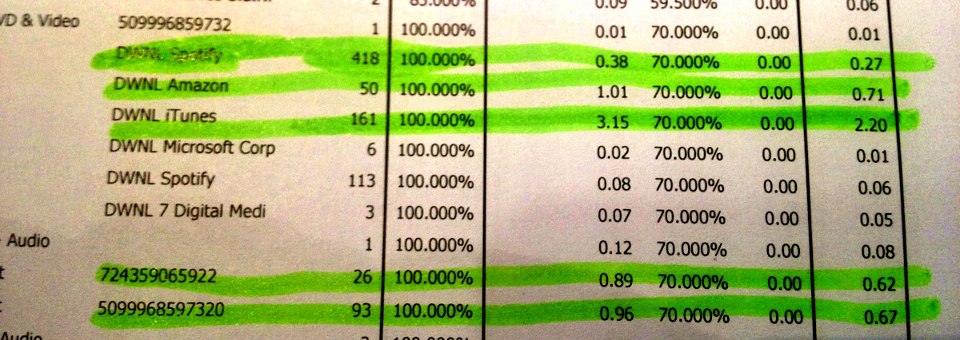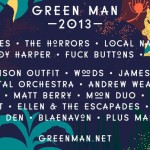JC Carroll is somewhat of a under appreciated legend. As part of the THE MEMBERS in the spring of 79 he co-wrote the anthem ‘The Sound of the Suburbs’. The Members then recorded the OFFSHORE BANKING BUSINESS a very early example of white reggae and a song that was to provide a blueprint for bands like the Police and the Specials. THE MEMBERS then concentrated on the American and overseas market as they chalked up Hits in America (WORKING GIRL) and Australia (RADIO) before calling it a day in 1983. Since then he’s been writing under various guises working with the likes of Johnny Thunders, Glen Matlock and DeeDee Ramone, at one point he joined Folk rock band the Wise Monkeys as well as putting together work for soundtracks such as Loch Ness and Don Juan Demarco. More recently it’s his solo work that has been his focuss hanging up up his electric guitar and armed only with Accordian and Mandolin he went off in search of his French Irish Roots.Releasing a series of solo albums under his own name online with titles like ‘The Rock is in the Lapt0p’, ‘New English Blues Volume 1 iTunes’ ‘The Golborne Variations iTunes’ and creating a buzz on youtube with his solo postings.
JC recently posted a breakdown of his royalty figures from Spotify, Itunes and Amazon which sparked a debate around several questions. Is Spotify really a satisfactory model for musicians and labels when the returns are so miniscule? Does Spotify just encourage the thought that music is worthless? He has since sent us his thoughts:
“Okay let me talk about Spotify and other streaming sites and the effect they have on the record industry. Amongst musicians I am very lucky I have a few songs that always earn money and provide a small amount of royalties. Giving me the chance to maybe record a new album buy a guitar or even if I’m lucky sometimes, I can live off my royalties.
Over the years I have always invested money in my music. After all, the older you get the less sexy you look to a record company and the less likely you are to get record Deal. In common with a lot of musicians my age my back catalogue is tied up with record companies that no longer exist, who don’t pay royalties for the mechanics of records. So therefore I rely on my publishing royalties, Back in 1977 I would have been astounded to learn that my songs like ‘Sound the Suburbs’ or ‘Offshore Banking Business’ would still be earning income 35 years later. Nine years ago, I had a Eureka moment I bought a mac laptop some software and began recording records in my house, I began swapping files with other musicians on the internet and uploading my music to places like SoundClick and iTunes.
It was incredible I could record my records on a laptop upload them to these international servers and everybody in the world could listen to them, they could buy them as well. The feeling of elation when you uploaded a song to the Internet was fantastic: it was like releasing a bird from a cage something escaping from you. Of course the people who manage the catalogues of my old record companies we’re getting in on the act as well, they were putting my old music up on servers and selling them too. Of course under the terms of my old contract, they didn’t really feel the need to pass any of the money on to me. Apart from my publishing share that is. A couple of pence per download. And then Spotify got in on the act. Whoever was in charge of the big catalogues at the record companies decided it would be good idea to go with Spotify. The basic idea behind Spotify is you never have to own record ever again For a small fee you can stream all the best music in the world directly from your computer, I have read respected authors write articles in newspapers suggesting that buying records is old-fashioned I wonder how they would feel if I wrote an article in the daily Telegraph saying that buying books was old-fashioned!
So here are the maths, where I would get maybe 2 pennies from the sale of a record on iTunes I was now getting 6% of one penny for a stream on Spotify. Here’s the maths for 100 streams you get six pennies you can’t even buy a postage stamp with that. Get 1000 streams and you can maybe buy a packet of guitar strings. 10,000 streams and you can buy pair of jeans, With 100,000 streams you can buy new guitar. With 1 million streams you can buy a second hand car to drive you to a gig. Worse still if people don’t pay for your music they don’t value it. It no longer has value. When we were young we saved our money to buy a record, maybe one record week. We would listen to that record again and again and again learn all the words maybe even the chords. We formed a bond with that piece of vinyl. It was an important cultural icon for us. Just as my record ‘Sound of the Suburbs’ became for a whole generation. People come backstage at my shows and announce proudly they own my record. And with that song they felt a part of it. Do you really believe that people will feel the same attachment to stream? No they will not, and I suspect they will also flick from song to song as to get their monies worth they will try and consume as much music as possible. They will also use software to save that stream onto their computer. My real worry is for the next generation of musicians. How on earth are they going to make any money? Sponsorship? T-shirts? Performing? As a musician all your work goes into the music so why should you not be able to sell that?
Let me give you another analogy. I used to have a shop, on Saturday thousands of people came by my shop window hundreds of people came into the shop asked questions tried things and only 20 or so people actually bought anything. These 20 people are your customers everybody else is a browser, the best advice I can give to any young musician is to identify your customers concentrate on giving them what they want For they will give you money in return.A ‘proportion of people that use the Internet believe that their 6 pounds a month subscription entitles them to free content. Free movies free music. Do not make your content available for these people, if necessary make some releases only on CD so people have to send you the money, do not give your music away for nothing. For if you put no value on it nor will your customers. Berate People who upload your music onto YouTube publicly. Do not celebrate Pirate sites they are making lots of money from advertising using your content to attract money from big companies. All this advice is for young people who want to make money out of music . Do not believe the lie that giving your music away for nothing will somehow further your career it will not. JC Carroll 2013.”



